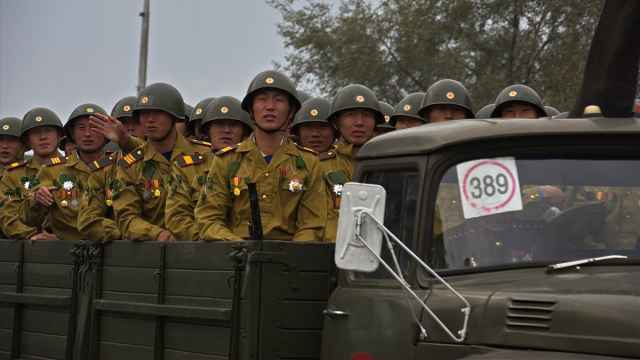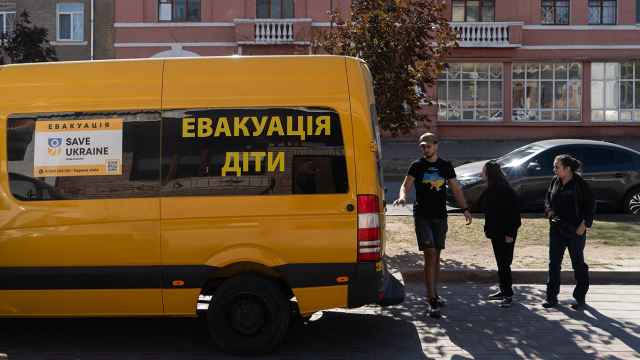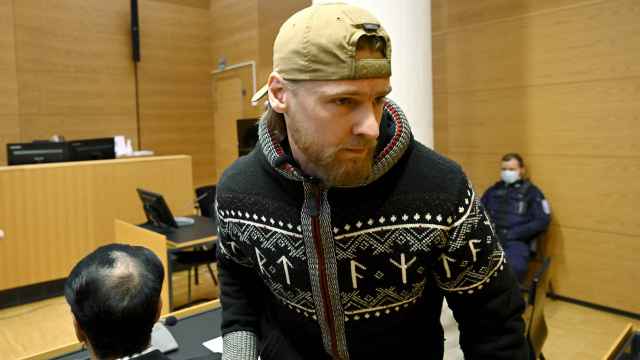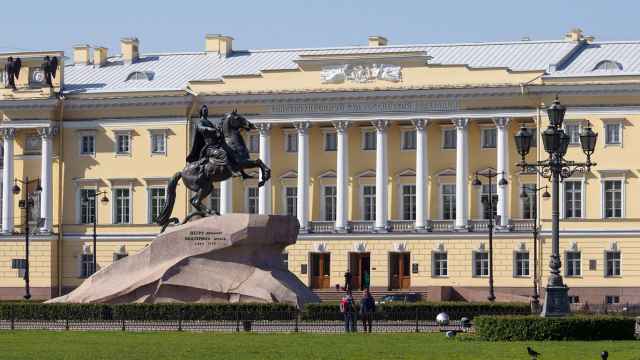It was a trial marked by intrigue. A covertly recorded sting operation, repeated court dodges by a key witness. Even Kafka made an appearance. But its conclusion was by far the most sensational scene.
A well-respected Russian official — the first cabinet minister to be arrested since the fall of the Soviet Union — had been sentenced to eight years in a high-security prison and handed a $2.2 million fine.
The verdict on Friday in the case of former economic minister Alexei Ulyukayev — found guilty of accepting a $2 million bribe from Igor Sechin, the CEO of oil giant Rosneft — sent shockwaves through Russia’s elite.
“Governors, officials,” former State Duma deputy Dmitry Gudkov wrote in a Facebook post soon after the decision. “If a minister can be sent to prison with this kind of ‘proof,’ then any of you can be sent just as easily.”
For many, the ruling foreshadowed what the political landscape may look like after March next year — when President Vladimir Putin is expected to win a fourth term in office, extending his tenure to 2024.
“The country is going into the next presidential term with the court having turned into a private instrument,” the political scientist Gleb Pavlovsky told The Moscow Times after the ruling. “If 20 years ago the country was complaining that the streets were full of criminals, now the criminals are running the court.”
“This is a much more dangerous situation,” Pavlovsky added.
Ulyukayev was arrested in November 2016 while he was at the helm of the country’s economy. According to judge Larisa Semyonova who read the verdict on Friday, the former minister solicited a bribe from Sechin in return for green-lighting Rosneft's bid to buy government-held stakes in the Bashneft oil company.
It was a bribe masterminded by Sechin himself, a close associate of Putin. Sechin asked Ulyukayev to visit his offices and handed him a bag, secretly taping the conversation, which the judge referenced in court. When investigators from Russia’s Federal Security Services (FSB) arrived on the scene, that bag was supposedly full of cash.
Ulyukayev’s defense argued that he thought its contents were wine and sausages and asked that Sechin be brought into court to testify. Yet Sechin skipped all four court summons.
The defendant himself added to the courtroom drama, bringing novels including Anton Chekhov’s “The Murder” and Franz Kafka’s “The Trial” to hearings that Sechin said he was too busy to attend.
“Everyone knows that Sechin was upset at [Ulyukayev], so he got the FSB involved,” Putin’s former speechwriter Abbas Gallyamov told The Moscow Times on Friday.
“It demonstrates to the elites that loyalty doesn’t guarantee that you won’t be punished,” Gallyamov continued.
“There used to be the belief that you could be fired, but not imprisoned,” he said. “Now people know that nothing will save them if they fight with someone in power.”
In his final court appearance before Friday’s verdict, Ulyukayev sent a warning to the rest of Russia’s establishment.
“It was said a long time ago: ask not for whom the bell tolls, it tolls for thee," he said. "It can toll for any one of you.”
“It’s become very easy,” he added. “A bag, a basket, a grainy video, three clicks and it’s ready.”
Russian media later on Friday reported that Ulyukayev could still escape a lengthy sentence on account of age and health concerns. His defense said that his health has dramatically worsened.
The case also highlighted a potentially fractured group of elites. A close ally of Ulyukayev, the former Finance Minister Alexei Kudrin, denounced the verdict. "This is a horrible, groundless sentence,” he said. “The investigators did a poor job.”
Putin kept to the sidelines of the dispute between the two men, a move which signalled to some analysts that the president would no longer mediate conflicts in his inner circle. The Kremlin on Friday refused to comment on the court’s decision.
Before the ruling, Putin brushed aside a question about Sechin’s failed appearances during his annual press conference Thursday. “It’s not against the law,” Putin said. “But he could’ve just gone, it’s not a big deal.”
To Pavlovsky, Putin’s silence indicates that he has lost control of the country he is in charge of.
“He has turned into a president under [his inner circle’s] control,” Pavlovsky said.
“As soon as they decide that he is no longer needed, they can easily turn [the court] against him.”
A Message from The Moscow Times:
Dear readers,
We are facing unprecedented challenges. Russia's Prosecutor General's Office has designated The Moscow Times as an "undesirable" organization, criminalizing our work and putting our staff at risk of prosecution. This follows our earlier unjust labeling as a "foreign agent."
These actions are direct attempts to silence independent journalism in Russia. The authorities claim our work "discredits the decisions of the Russian leadership." We see things differently: we strive to provide accurate, unbiased reporting on Russia.
We, the journalists of The Moscow Times, refuse to be silenced. But to continue our work, we need your help.
Your support, no matter how small, makes a world of difference. If you can, please support us monthly starting from just $2. It's quick to set up, and every contribution makes a significant impact.
By supporting The Moscow Times, you're defending open, independent journalism in the face of repression. Thank you for standing with us.
Remind me later.







